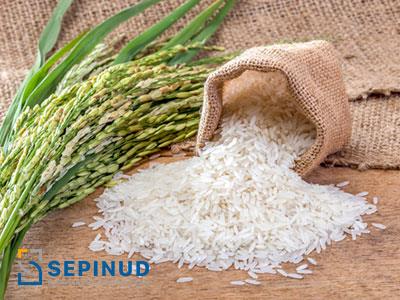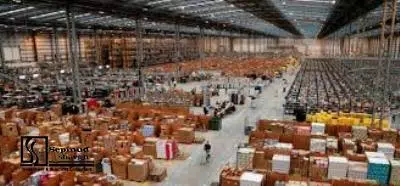Feasibility Study of Establishing a Rice By-Products Factory
Abstract:
Agriculture industry is one of the most important sectors which has a great impact on economy
by providing 80% of food industry’s needs, a quarter of GDP and a third of employment rate.
According to the reports, Iran’s global average per capita in food consumption is more than
average, so it means that foreign investment in food industry can have a positive return on
investment.
Due to huge volume of rice and by-products of rice among the Middle East countries, most of the
market requirements of Iran and Afghanistan is imported from Pakistan and India.
Proximity of Chabahar to Pakistan can cut down importing costs. As the rice products are
typically imported from Pakistan and India, it results in generating products with higher valueadded price to be distributed in foreign or domestic markets.
The purpose of the plan is to establish a rice by-products factory in Chabahar free zone in order
to produce by-products of rice such as rice bran, rice flour, artificial rice, and rice starch.
Geographical location, sufficient Infrastructure and equipment for export and domestic
transportation are among advantages of establishing a rice by-products factory in Chabahar.
Chabahar Free Zone, the only Free Zone neighboring with Indian Ocean and Indian subcontinent
markets which is located in International Indian corridor that links Russia and central Asian
countries and Afghanistan to free waters is a great place for investment, trade and transit goods
between mentioned countries.
Utilization of marine and fisheries resources like seaweed have become one of most important
potentials for economic development in upstream and downstream sections. Also, utilization of
renewable energies such as wind, solar and sea wave can help to provide required energy for
several industries, agricultural activities, utilization of mineral materials, processing metal and
non-metal materials and steel, Negin Petrochemical Complex, the completion of transportation
infrastructure and energy resources are among the important facilities to absorb foreign
investors.
Products transportation, regional trade, loading and unloading heavy products and transporting
goods to countries like Oman, India, Pakistan and central Asian countries are investment
opportunities in Chabahar Free Zone.
Besides, incentive rules such as 20-year tax exemption on legal and real person’s income, tax
exemption from customs duties, moderate terms for importing and exporting goods, free inflow
and outflow of capital have made great potentials for investment in this region.
As reports indicate, 5 thousand tons of rice have been imported into the country, which can be a
great opportunity for investors to establish a rice processing factory in order to process brown
rice (imported from Pakistan) which leads into creating more jobs and reduce the cost of rice in
the market.
According to statistics, an average per capita in consumption of rice and by-products of rice is
36kg per person and to supply the demands of the market, 1 million tons of rice must be
imported. As maintained by reports, import rates are higher than official records, which show
high influence of illicit products in the market.
Rice by-products factories in Iran convert a great deal of inferior imported products (rice) into
rice flour. Most of these products come from China, Pakistan, India and Thailand.
Due to rainfall reduction and water shortage in Iran, high-grade products (rice) are scarce in the
market and insignificant products have negative influence on people and market perspectives.
Considering the fact that majority of people are turning to substitute rice with rice by-products,
this industry will have a prosperous and profitable future.
Advantages of a rice by-products factory in Chabahar free zone:
- Low and inexpensive loading and discharge
- Inexpensive customs and import duties
- Proper piers for mooring big ships
- Access to international airports and international waters
- Proximity to Pakistan (biggest importer) and Afghanistan (biggest customer)
Advantages of investment in Chabahar Free Zone:
- Inexpensive and proficient workforce
- inexpensive energy costs
- inexpensive land
- exemption from customs duties to import machinery
- value-added tax law
- 20-year tax exemption (according to Free Zones law)
Chabahar free zone, as a link between Iran and the Oman Sea, is one of the most important
waterways in the world. Access to high seas and international ports has made Chabahar free
zone a geographically convenient location to transit goods to CIS countries. In addition, low
storage costs and port services for containers and commercial goods, and ability for mooring
big ships (100 thousand tons) have made this region economically important and suitable for
investment.
Chabahar free zone’s goal is to enhance investment in the region by establishing a Rice and rice
by-products industrial park (including 14 factories) along with providing financial facilities and
free zone’s investment law to motivate investors in Chabahar.
One of the competitive advantages of Chabahar Free Zone is a direct shipping line between
Chabahar and India and thus, the proximity to Pakistan and India as the main suppliers of Iran,
Afghanistan and Middle-East.
As the reports indicate, millions of tons of rice are imported to Iran each year; and by running a
rice by-product factory in Chabahar free zone, not only it can help to improve the economy and
create jobs, but it also helps to reduce costs and enhances the potential to export processed rice
even to Pakistan. Considering all the aspects, we can say that there is a great potential to make
Chabahar Free Zone a hub for Rice production in Iran.






.jpg)
.jpg)
.jpg)
